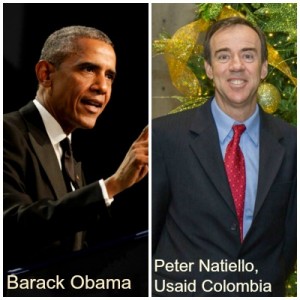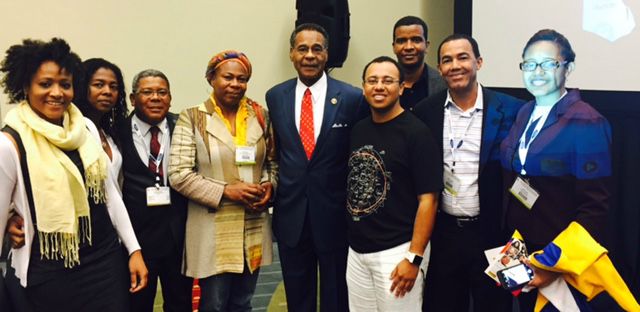The American partnership with the Afro-Colombian population still does not follow its President’s ideals. Afro-Colombian leaders ask for change in execution of a specific heading of Plan Colombia.
In the Civil Society Forum from the seventh Summit of the Americas in Panama, Obama summarized a philosophical transition regarding the relations of his country towards the civil societies of other nations.
“When we are helping an organization that is trying to empower a minority group inside a country to get more access to resources, we’re not doing that because it serves our own interests; we’re doing it because we think it’s the right thing to do”, he said.
These remarks could be dismissed as empty words to gain applause, but the change from regionalism to multilateralism in the usage of military power, and in his foreign policy in general, give Obama a certain credibility.

The purported shift was based on experience with the Program for Afro-Descendants and Indigenous People, that has disbursed 62 million dollars from a specific subheading of the Plan Colombia.
The letter suggested that the US creates its public diplomacy policies based on the dynamics of the (minority) populations it is supporting. “We want support for our strategy instead of supporting the donor’s strategy,” was said to the Deputy Secretary of State, Blinken.
In Obama’s words, the goal is not to serve their own interests, but those of the social group to be empowered. This in the end best serves the interests of the donor country, even if the change is detrimental because power is lost (in exchange for influence).
Public diplomacy, as practiced, has a high PR component, symbolic gestures and media exposure are associated with small results on many fronts, so help can “be seen.”
The strategic interests of a disadvantaged group in a society require long-term aid, affecting variables that fail to gain exposure, concentrating objectives on those with the greatest impact. These are two very distinct dynamics.
With the traditional approach, the leaders of the group are the recipients of funds for which they must be thankful. With Obama’s philosophy, they are communicators in charge of a cause. That’s what distinguishes an empowering approach.
Afro-Colombian leadership achieved the subheading of the Plan Colombia in Washington, but the letter asked for a “Quarterly dialogue with the USAID directive staff to exchange information and concepts about the impact of the programs,” without success.
USAID remarked in its response that “the deep changes in the conditions of ethnic groups are the responsibility of Colombian society in its entirety.” Agreed, but if after investing more than 100 million dollars the Afro-Colombian population remains just as weak to fight for itself, can it be said that they did “the right thing”?
When will such financial resources be available again to produce a qualitative change in strategic capacity? The letter said “we don’t want money, we want services.” To be continued…
This text was originally published in Spanish (28/11/2015) in one of Colombia’s national papers.
Translation by Alejandro Maldonado.

